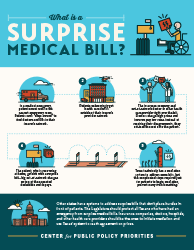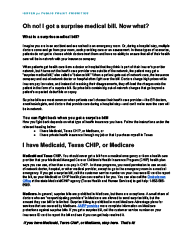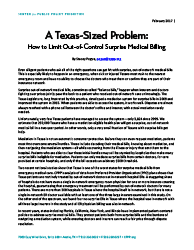
Equity in Focus
40% of U.S. adults would have trouble paying an unexpected $400 bill. Across every education level, Black and Hispanic adults are even less able to handle such an expense. The average surprise medical bill in a medical emergency or a planned surgery far exceeds $400, leaving many Americans at risk of financial harm from surprise medical bills.¹



